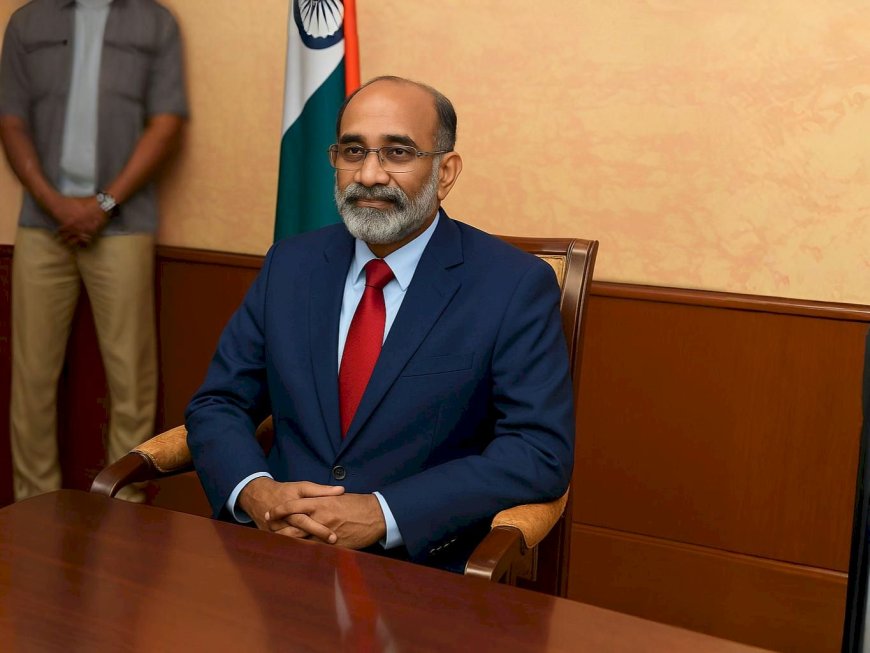KJ Alphons to Corporates: “Do Good as a Duty, Not Just for Show”
KJ Alphons appeals to corporate leaders to embrace social responsibility as a genuine duty rather than a publicity tool, urging a deeper commitment to purpose-led growth.

In a powerful and heartfelt address to the business community, KJ Alphons, former Union Minister and public policy advocate, urged corporate leaders to shift their focus from performative actions to purpose-driven impact. Speaking at a recent branding and ethics summit, Alphons emphasized that corporate responsibility should stem from conscience, not just marketing strategy.
His core message was clear: “Do good not for optics, but because it’s your responsibility.”
This rallying cry resonates at a time when trust in institutions is under scrutiny, and public expectations from companies are evolving rapidly. For Alphons, corporate citizenship is not a trend but a moral obligation—one that defines the credibility and sustainability of modern businesses.
Going Beyond the Surface
In his keynote, Alphons challenged companies that engage in token CSR initiatives, branding exercises, or one-off donations simply to improve public perception. “If you're doing good only to be seen doing good,” he said, “then you're missing the point.”
Instead, he advocated for deep-rooted, consistent efforts that genuinely improve lives—be it through education, employment, healthcare, sustainability, or community development. According to Alphons, the measure of a company’s greatness is not just in profits or market share, but in its ability to bring meaningful change to society.
The Role of Leadership in Driving Change
Alphons stressed that responsibility begins at the top. CEOs and founders must lead by example, making ethical and social priorities part of their corporate DNA.
“Your leadership is not just about driving performance metrics,” he stated. “It’s about shaping a culture where doing good becomes second nature.”
He encouraged boards and decision-makers to incorporate social impact into their long-term vision and performance reviews, not as an add-on but as an essential business pillar.
CSR Is Not a PR Tool
Alphons warned against treating Corporate Social Responsibility (CSR) as a branding gimmick. “The moment you start viewing CSR as a marketing strategy, it loses its soul,” he said.
Instead, he called for companies to:
-
Engage with real problems at the grassroots level
-
Collaborate with civil society and local communities
-
Measure impact not in ad impressions, but in lives uplifted
This approach reflects a growing sentiment globally where stakeholders—customers, employees, and investors alike—are demanding authenticity over advertisement.
Aligning Profit with Purpose
Rather than viewing social good and business performance as mutually exclusive, Alphons presented a compelling case for sustainable business models that align purpose with profitability.
“Companies that care deeply about society attract loyalty, innovation, and resilience,” he said. “Your brand will grow when it becomes a symbol of trust, not just a logo on a billboard.”
He pointed to case studies of Indian firms that have integrated CSR into their core—helping farmers adopt tech-based tools, funding education for underserved youth, or enabling women entrepreneurs in rural areas.
India at the Crossroads of Corporate Impact
With India’s vast socio-economic diversity, Alphons believes the corporate sector has an unmatched opportunity—and responsibility—to lead the way in addressing challenges like:
-
Poverty alleviation
-
Clean water and sanitation
-
Digital inclusion
-
Youth skill development
Rather than waiting for government programs to bridge every gap, companies should step forward as solution partners in nation-building. “You have resources, talent, influence—use them not for just profit, but progress,” he emphasized.
The Need for Empathy and Integrity
In a world grappling with inequality, climate change, and mental health crises, Alphons called on corporate India to adopt a leadership style rooted in empathy, humility, and transparency.
“It’s not about grand gestures. It’s about small actions done with sincerity,” he said.
He also called out the need for ethical clarity in marketing and governance, stressing that corporate values must align with societal well-being—not manipulate it.
A Call to Young Entrepreneurs
Alphons also directed a portion of his address to India’s rising generation of entrepreneurs and startup founders. He encouraged them to embed ethical purpose at the foundation of their companies—before scale, valuation, or exit plans come into the picture.
“Start small, but start right,” he advised. “Let your first hire, your first pitch, your first milestone be driven by impact.”
Do Good, and Keep Doing It
Concluding his speech, Alphons urged companies not to treat impact as a one-time act, but as a lifelong commitment.
“Doing good isn’t a trend that fades—it’s a value that grows. And the more you nurture it, the more it nurtures your company, your people, and your legacy.”
His words were met with standing applause, signaling a collective desire for deeper introspection in corporate India—and a hopeful step toward action over optics.
Conclusion
KJ Alphons’ message strikes a timely chord in an age where audiences can easily spot inauthenticity. For businesses, the path forward isn’t about performing kindness—it’s about practicing it with conviction.
What's Your Reaction?
 Like
0
Like
0
 Dislike
0
Dislike
0
 Love
0
Love
0
 Funny
0
Funny
0
 Angry
0
Angry
0
 Sad
0
Sad
0
 Wow
0
Wow
0












































